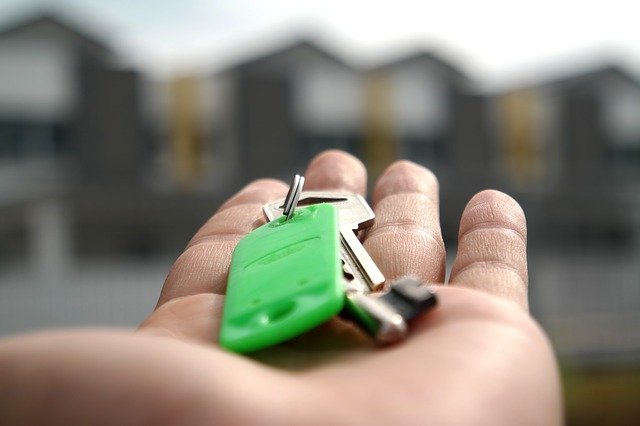Buying a house is not exactly an easy process, and most people know it. Believe it or not, most people agree that moving is even more stressful than divorce!
However, with the right preparation and tips, buying a home doesn’t have to be too challenging. Luckily, we can help with that!
Let’s talk about some of the most important home-buying tips for first-time owners in 2022!
1. Create a Savings Plan
Well in advance, you should develop a savings plan and stick to it.
Not only do you want a downpayment for your home, but you also want more purchasing power and money on hand after the purchase.
Essentially, you don’t want to limit yourself.
If you know you want a house in the $200,000 range and that you want to put $40,000 down, don’t stop at $40,000.
First of all, there are a lot of moving costs involved, realtor fees, and more. Also, what happens if you move in and need a new water boiler in a few weeks?
Also, if you wind up putting down 19% instead of 20% because you saved exactly 20%, you may be stuck paying for private mortgage insurance!
Consequently, we recommend saving an additional $10,000 just to be safe. $10,000 is a good enough “buffer” for most situations.
Write a Budget
The keyword there is “write”, as we are 42% more likely to achieve the goals we’ve written down.
The budget should reflect your savings goal, timeline, and current income.
For most people, breaking your income into three categories works best.
If you manage to get utilities, groceries, rent, and everything else under 50%, add the additional cash into your savings. You may need to for a rainy day and you don’t want to throw off your savings timeline.
Do your best to cut down on “wants”. Remember, eliminating a $5 coffee in the morning could save you $150 a month, so really look at your expenses and prioritize.
Lastly, 20% is the minimum.You don’t want an unexpected expense to ruin your savings goals.
To make it easier, try automating the 20% into your savings so you don’t even have to pay attention to it!
2. Don’t Forget About Credit
Once again, as far in advance as possible, start building your credit scores.
Don’t underestimate the value of good credit when it comes to buying a home. A difference of 50 points could be the difference between a 1.99% mortgage rate and a 3.49% mortgage rate.
That doesn’t sound like a big deal? Think again.
In the context of a $300,000 home, a 1.5% difference on interest is $4,500. Would you spend $4,500 extra on a car if you didn’t have to? No.
Well, even if that doesn’t sound bad over the course of a 30-year loan, $4,500 is the same amount of money no matter how you slice it.
Also, that’s only the difference of 1.5%. If your credit is new or poor, you could be looking at double or even triple that difference.
Fortunately, if you have a couple of years to build your credit, you can do so.
How to Build Credit
Credit utilization, payment history, and credit mix are the most important factors on your credit score, and having a revolving line of credit (like a credit card) will help with all three.
Second, use your credit card and pay it off either in full or nearly in full every month!
Lastly, make consistent payments on all of your installment loans (student loans, car loans, etc.), and you’re golden! It really is that simple, and if you’re consistent over the course of a couple of years, you’ll see a substantial improvement.
3. Get Out of High-Interest Debt
One of the biggest hindrances to savings goals and credit scores is excessive, high-interest debt.
If you have an outstanding credit card balance, payday loan, or anything similar, it’s time to focus on that before you start saving.
In the context of a payday loan, interest rates tend to be even worse.
When it adds up that quickly, paying it down is critical before trying to boost your savings.
4. Identify Your Needs
Before searching for the right area
Of course, this is entirely unique to you and your needs. However, some of the most important factors for first-time homeowners include:
- Quality of schools
- Walkability
- Safety
- Quiet/Privacy
- Proximity to downtown
- Proximity to work
- Garages
- Large backyard
- Finished basement
- Enough bedrooms or bathrooms
- Modern heating systems and appliances
The list goes on for miles.
Also, are you okay with a condo or do you need your own yard? How far are you willing to commute? These are important questions to ask, and again, write them down!
5. Conduct Some Market Research
Wherever you’re planning to buy a home, it’s important to understand where the housing market is, which neighborhoods will best suit your needs, and, of course, how much you need to save.
Take some time, consider your needs, take your budget into account, and look around the area where you most want to live.
Look in the Right Places
One overlooked factor that could save you money and take some stress off your back is simply choosing the right Real Estate Market Place.
From there, add both your ideal and maximum budgets to find the right house for your needs.
6. Get Pre-Approved
Once you’ve improved your credit, shop around for pre-approvals and see which lender will give you the best rates and terms. Give yourself as much time as possible for this and don’t forget to unsubscribe from all of their newsletters when you’re done!
Usually, these approval letters will only last for 30 days, so shop around for pre-qualification first and apply for the best loan when you begin house shopping.
7. Find the Right Real Estate Agent
Not all buyers use a real estate agent, but we recommend it for first-time homebuyers.
The home-buying process comes with a lot of stress, so having a professional who understands your needs and knows what to look for to help you out can make the process a lot easier.
Also, they’ll be able to run through the home-buying checklist with you, let you know what you’re missing, and handle a lot of the communication and work involved in the process.
Not only that, but they’ll also be able to find some of the best deals in the area and negotiate a fair price for you.
If you’re moving within the area, ask your friends and coworkers if they have any recommendations, or look at online reviews in the area to find the best agent!
8. Pay for a Home Inspection
Lastly, inspections are an essential expense.
Homes may have excellent curb appeal and seem great on the inside, but there are many potential problems that don’t show on the surface.
Don’t take the sellers’ word for it. Pay for a thorough home inspection so you can make an informed decision.
9. Prepare for Closing
Now, your real estate agent will go over everything you need before closing, but it’s still best to be prepared. You will need your approval from the bank, personal identification, and a host of other documentation before closing.
From there, congratulations! You’re a homeowner!
10. Buy the Right Insurance
Homeowner’s insurance is critical, but what’s even more important is buying the right policy.
If you live in a flood zone, wildfire zone, or if your home is at any particular risk, you need coverage. This is one of the biggest mistakes first-time owners make, so read the fine print!
Enjoy Your New Home
Now that you know the most important home-buying tips for first-time owners, put them to good use! Start saving today, build your credit, and make wise decisions when shopping for loans and houses.
Get started today and keep reading our blog for our latest financial advice!










